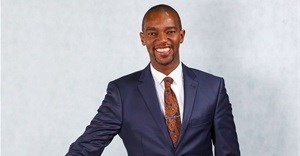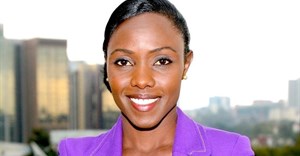
Concerns about climate change hit home
Revealing the world's view on climate change, BBC World News and Synovate surveyed 22 markets on six continents in 2007 and 2008. Each of the topics investigated are linked to the global news agenda of international news channel BBC World programming.
Concerns about climate change have increased across all markets with the overall figure increasing from 68% in 2007 to 72% in 2008. While South Africans were not as worried as they were last year (82%), they are still 5% above the global average.
Jeremy Nye, Head of Audience Insight at BBC World News says, “These results reflect what our audiences have been telling us with regard to their levels of concern about global warming. In nearly all markets, citizens believe it is up to ordinary people to change their behaviour; the way in which global issues and personal behaviour are intertwined explains the increasing relevance of international news. BBC World News has commissioned a number of programmes, including What a Waste and Nature Inc., which are currently being broadcast on the channel to satisfy their interest and curiosity.”
Owning up to the cause
South Africans are not only showing more concern about climate change but are now taking more ownership of the factors which cause it.
Twenty-seven percent (27%) of South Africans rated ‘human causes' as the factor most responsible for causing climate change. This is a significant shift in mind-set compared to 2007 when only 14% of South Africans said that humans are to blame. Second to this was ‘pollution' (23%), another consequence of human neglect.
If human cause is chiefly to blame, then what are we doing about it?
When asked what they had done in the last year to personally reduce the effects of climate change, 89% of South Africans said that they have reduced their power usage. However this could also be related to the nation's reaction to the power supply shortages which they have experienced during the year.
Notably more (11%) South Africans are also taking more of an active interest, with 69% saying that they have informed themselves about climate change. Furthermore, 80% of South Africans said that they had reduced their water usage.
Dangerous changes
Across the globe, 26% felt that erratic weather conditions would be the main danger of climate change. Last year, this was also the most feared threat of climate change across all the markets survey but this year the score increased by 5%.
What do South Africans fear most about climate change?
The majority of South Africans also felt that erratic weather conditions were the most dangerous threat, while 15% said flooding and 11% said that drought is the main threat.
Who's to blame?
Of those South Africans who thought that there was one country most responsible for the climate changes on Earth, 44% said that is was the USA.
Most interestingly, 17% blamed their own country. This, again, seems to show that people are taking ownership of the damage being done and moving away from an attitude of escapism. In third place, 13% of South Africans said that China was solely to blame for climate change on Earth.
In the USA we find a similar sense of ownership, with the majority of its citizens also nominating their own country as the most responsible for climate change at 74%. However, this is a drop down from 82% in 2007.
A climate for change
In a new question for 2008, respondents were asked ‘In terms of tackling climate change within your country, do you think it will be fixed most by changed behaviour of ordinary citizens, technical break-throughs or Government-imposed restrictions and incentives?'
Forty-five percent (45%) of people across all the markets surveyed, said that the changed behaviour of ordinary citizens would be most effective in talking climate change. Twenty-nine percent (29%) chose Government-imposed restrictions and incentives, with 20% siding with technical break-throughs as a solution.
‘Government-imposed restrictions and incentives' received 44% of the vote from South Africans, followed by ‘the changed behaviour of ordinary citizens' (34%). 9% of South Africans felt that technical break-throughs would be the solution.
Whilst technology and imposed restrictions are supported, there is a clear voice from the people saying ‘It's up to me'. A consciousness of climate change, it causes, its effects and our position in this relationship has hit home strongly.
Curiosities:
- Inhabitants of Spain and Brazil appear to be most worried about climate change at 88% and 86% respectively.
- USA citizens showed the highest increase in concern between this year and the last (57%, up to 80%).
- The USA received the highest score for being the country which is solely responsible for climate change (down to 61%, from 66% in 2007), followed by China (up to 18%, from 14% in 2007).
- Globally, ‘human causes' (27%) came out as the factor most responsible for causing climate change. Second to this was ‘pollution' (20%) another consequence of human neglect.
- Over the past year, in an attempt to reduce the effects of climate change, participants have saved power (81% have done so, up from 76% in 2007), recycled waste (70%, up from 65%), reduced water consumption (69%, up from 65%), reduced the use of packaging and bags (68%, up from 56%), bought green products (61%, up from 53%), bought energy-efficient devices (59%, up from 53%) and informed themselves about climate change (58%, up from 46%).
- Unlocking the value of creativity in advertising: How to bridge the creativity gap15 Apr 13:47
- 4 habits keeping your brand poor26 Mar 16:08
- Understanding consumer mindsets for growth in 202407 Mar 08:52
- South Africa's unemployment nightmare: The burden on its people09 May 10:05
- Global survey shows shrinking trust in internet29 Nov 10:17

















![[Behind the BBC Story] Lerato Mbele](https://biz-file.com/c/1603/334781-300x156.jpg?2)

![[Behind the Selfie] with... Lerato Mbele](https://biz-file.com/c/1508/302975.jpg)